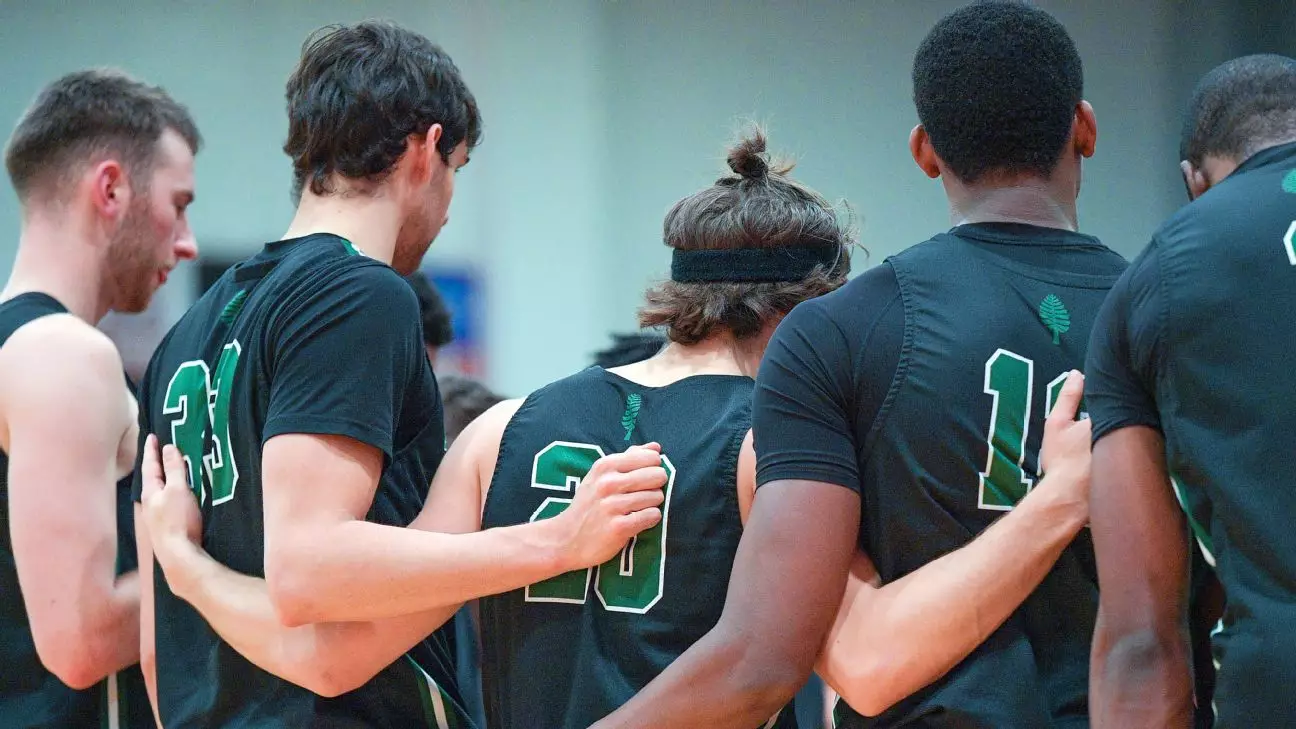In a groundbreaking ruling, a National Labor Relations Board (NLRB) regional official recently declared that Dartmouth basketball players are employees of the school. This decision paves the way for the potential formation of the first-ever labor union for NCAA athletes. All 15 members of the Dartmouth men’s basketball team signed a petition to join Local 560 of the Service Employees International Union, seeking not only to negotiate salaries but also to address working conditions such as practice hours and travel. The implications of this ruling are far-reaching and are likely to have a significant impact on the landscape of college sports.
The NCAA and universities across the country have long maintained that student-athletes are primarily students, not employees. However, with this ruling, the distinction between student and employee is called into question. While college sports leaders have pushed for federal laws to solidify the student classification, the ongoing federal lawsuit in Pennsylvania and the recent NLRB ruling challenge the NCAA’s amateur athlete model. The recognition of college athletes as employees represents a potential shift in how we perceive and treat athletes in the collegiate setting.
If this ruling stands, it could be the first step toward granting employee status to all college athletes. This could have a profound impact on the rights and benefits afforded to athletes, allowing them to negotiate not only salaries but also working conditions. The newfound ability to address practice hours, travel requirements, and other aspects of their athletic commitments could lead to a more equitable college sports landscape. Moreover, the ruling raises questions about the classification of other student performers, such as music students, and whether they should also be deemed employees.
While the NLRB regional director’s decision is significant, it is not the final word on the matter. Dartmouth has the option to appeal the ruling to the national board, as Northwestern did when their football team held a union election in 2014. In that case, the ballots were impounded pending a ruling. However, in contrast to the Northwestern case, the Ivy League schools are private and do not grant athletic scholarships. This distinction may increase the likelihood of the full board upholding the regional director’s decision. Nonetheless, as the college basketball unionization movement gains momentum, similar challenges may arise in different states, potentially leading to a nationwide reevaluation of the athlete-student dynamic.
The recognition of college athletes as employees is just one of several threats to the collegiate sports model based on amateurism. The NCAA is currently facing multiple antitrust lawsuits, challenging restrictions on recruit compensation for their name, image, and likeness. The model has already been shaken by a 2021 Supreme Court ruling that allows additional forms of pay for college athletes. As a result, the NCAA has been forced to relax its rules concerning players profiting from their celebrity status. This ruling, in conjunction with the other legal challenges, further erodes the NCAA’s control over the compensation and treatment of athletes.
The recognition of NCAA athletes as employees marks a pivotal moment in college athletics. It challenges the traditional notion of the student-athlete and opens up a broader conversation about fair treatment and compensation within the collegiate sports industry. While the full impact of this ruling remains to be seen, it undoubtedly signifies a sea change in the way we perceive and regulate college sports. As legal and political challenges to the current model mount, colleges and universities may be compelled to revisit their approach to athlete compensation and reconsider the balance between academics and athletics.
The NLRB’s ruling on the employment status of Dartmouth basketball players has far-reaching implications for college athletics. It challenges the longstanding belief that college athletes are solely students and may lead to fundamental changes in how we view and treat these athletes. As the legal battles continue and the pressure to recognize athletes as employees grows, the landscape of college sports is poised for significant transformation. Only time will tell how this ruling will shape the future of college athletics, but it undeniably raises important questions about fairness and equity for the athletes who contribute so much to the success of their institutions.


Leave a Reply